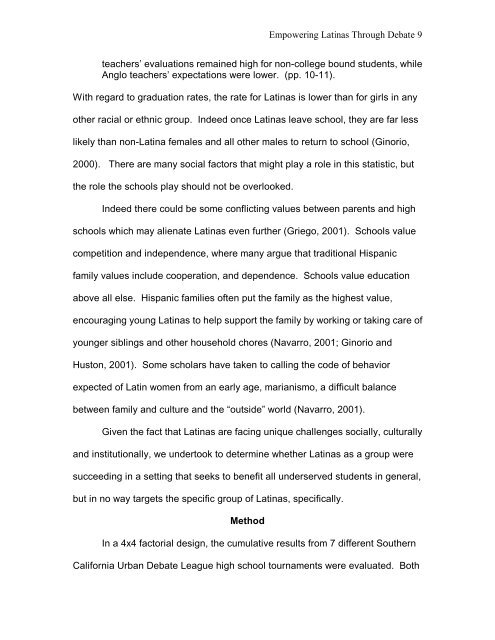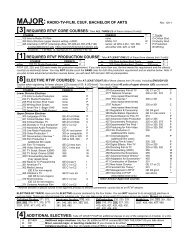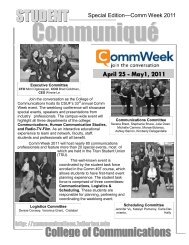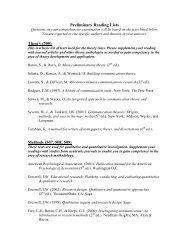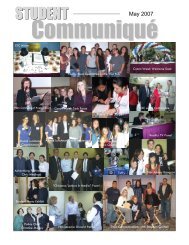Empowering Latinas Through Debate - College of Communications ...
Empowering Latinas Through Debate - College of Communications ...
Empowering Latinas Through Debate - College of Communications ...
You also want an ePaper? Increase the reach of your titles
YUMPU automatically turns print PDFs into web optimized ePapers that Google loves.
<strong>Empowering</strong> <strong>Latinas</strong> <strong>Through</strong> <strong>Debate</strong> 9<br />
teachers’ evaluations remained high for non-college bound students, while<br />
Anglo teachers’ expectations were lower. (pp. 10-11).<br />
With regard to graduation rates, the rate for <strong>Latinas</strong> is lower than for girls in any<br />
other racial or ethnic group. Indeed once <strong>Latinas</strong> leave school, they are far less<br />
likely than non-Latina females and all other males to return to school (Ginorio,<br />
2000). There are many social factors that might play a role in this statistic, but<br />
the role the schools play should not be overlooked.<br />
Indeed there could be some conflicting values between parents and high<br />
schools which may alienate <strong>Latinas</strong> even further (Griego, 2001). Schools value<br />
competition and independence, where many argue that traditional Hispanic<br />
family values include cooperation, and dependence. Schools value education<br />
above all else. Hispanic families <strong>of</strong>ten put the family as the highest value,<br />
encouraging young <strong>Latinas</strong> to help support the family by working or taking care <strong>of</strong><br />
younger siblings and other household chores (Navarro, 2001; Ginorio and<br />
Huston, 2001). Some scholars have taken to calling the code <strong>of</strong> behavior<br />
expected <strong>of</strong> Latin women from an early age, marianismo, a difficult balance<br />
between family and culture and the “outside” world (Navarro, 2001).<br />
Given the fact that <strong>Latinas</strong> are facing unique challenges socially, culturally<br />
and institutionally, we undertook to determine whether <strong>Latinas</strong> as a group were<br />
succeeding in a setting that seeks to benefit all underserved students in general,<br />
but in no way targets the specific group <strong>of</strong> <strong>Latinas</strong>, specifically.<br />
Method<br />
In a 4x4 factorial design, the cumulative results from 7 different Southern<br />
California Urban <strong>Debate</strong> League high school tournaments were evaluated. Both


